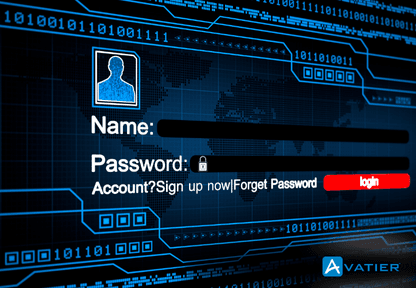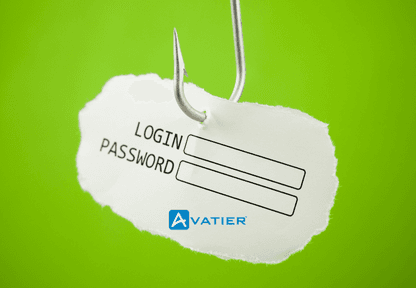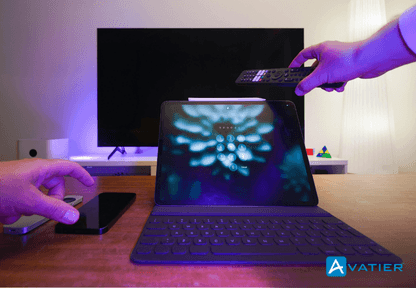August 17, 2025 • Mary Marshall
The Security Dilemma: Are HIPAA Violations The Root Cause of Healthcare Data Breaches?
Explore how healthcare organizations can prevent HIPAA violations and data breaches with modern identity management solutions.
Data breaches and HIPAA violations have become distressingly common occurrences. According to IBM’s 2023 Cost of a Data Breach Report, healthcare organizations continue to face the highest average data breach costs at $10.93 million per incident—significantly higher than the global average across industries of $4.45 million. This stark reality raises an important question: Are HIPAA violations themselves driving the explosion in healthcare data breaches, or are they symptoms of deeper security challenges?
The HIPAA Compliance Challenge in Modern Healthcare
The Health Insurance Portability and Accountability Act (HIPAA) was established in 1996 to protect patient information and ensure privacy. Yet decades later, healthcare organizations still struggle with compliance. According to the Department of Health and Human Services (HHS), over 4,400 healthcare data breaches have been reported since 2009, affecting over 300 million patient records.
These statistics reveal a troubling reality: despite strict regulations, healthcare organizations remain vulnerable to data breaches that compromise protected health information (PHI). The complexity of HIPAA requirements combined with evolving threat landscapes creates a perfect storm for security failures.
Common HIPAA Violations Leading to Breaches
The most frequent HIPAA violations leading to data breaches include:
- Insufficient access controls: Employees with unnecessary access to PHI
- Inadequate authentication protocols: Weak password policies and lack of MFA
- Poor identity governance: Failed user provisioning/deprovisioning processes
- Limited audit trails: Inability to monitor and track suspicious activities
- Improper PHI handling: Sharing sensitive information through unsecured channels
Many healthcare security leaders find themselves caught in a reactive cycle—responding to violations after they occur rather than proactively preventing them. This approach is both costly and ineffective.
The Identity Management Foundation of HIPAA Compliance
The path to HIPAA compliance and robust security begins with sophisticated identity management. HIPAA HITECH Compliance Solutions must focus on establishing a zero-trust security framework where identity becomes the new perimeter.
Identity and access management (IAM) isn’t just another security tool—it’s the foundation for HIPAA compliance. By implementing comprehensive identity governance, healthcare organizations can dramatically reduce their risk profile.
Key Identity Controls for HIPAA Compliance
A robust HIPAA compliance software solution should include:
- Automated user provisioning and deprovisioning: When clinicians, administrative staff, or vendors join or leave the organization, their access rights should be immediately adjusted.
- Least privilege access: Users should have access only to the minimum PHI necessary to perform their jobs.
- Multifactor authentication: Password-only authentication is no longer sufficient for protecting PHI.
- Access certification and recertification: Regular reviews ensure that access rights remain appropriate over time.
- Comprehensive audit trails: Detailed logs of who accessed what information and when.
Identity management provides the structure necessary to implement these controls effectively. According to a recent Ponemon Institute study, organizations with mature identity security programs experience 50% fewer data breaches than those with underdeveloped programs.
Beyond Compliance: Building a Security-First Culture
While technology solutions are essential, true security requires a culture shift. Healthcare organizations must move beyond viewing HIPAA as a compliance checkbox and instead embrace security as a core organizational value.
This cultural transformation includes:
- Regular security awareness training: Employees must understand PHI protection as part of their daily responsibilities.
- Clear security policies: Documented procedures for handling PHI in every scenario.
- Risk assessments: Ongoing evaluation of potential vulnerabilities.
- Incident response planning: Predetermined protocols for addressing potential breaches.
Modern identity management platforms can support this cultural shift by making security practices more intuitive and less burdensome for healthcare staff.
The Self-Service Revolution in Healthcare Identity Management
One of the most significant advancements in healthcare identity management is the shift toward self-service capabilities. Traditional IT ticketing systems create bottlenecks that frustrate clinicians and increase the likelihood of workarounds that compromise security.
Self-service identity management allows:
- Password resets without helpdesk intervention: Clinicians can quickly recover access without delays that impact patient care.
- Access request workflows: Staff can request specific access through intuitive interfaces, with automatic routing for approvals.
- Profile management: Users can update their information while maintaining compliance.
These self-service capabilities reduce the friction associated with security measures, increasing adoption rates and strengthening overall compliance posture.
AI-Enhanced Identity Governance for Healthcare
Artificial intelligence is transforming how healthcare organizations approach identity governance and HIPAA compliance. AI-driven identity solutions can:
- Detect anomalous access patterns: Identifying potentially inappropriate PHI access before breaches occur.
- Automate access reviews: Flagging risky access combinations and recommending adjustments.
- Streamline authentication: Using behavioral biometrics to verify users without disrupting clinical workflows.
- Predict potential compliance issues: Using pattern recognition to identify emerging risks.
By leveraging AI capabilities, healthcare organizations can move from reactive to predictive security postures, addressing potential HIPAA violations before they result in breaches.
The Regulatory Compliance Advantage of Modern IAM
Today’s healthcare organizations face a complex web of regulations beyond just HIPAA, including:
- HITECH Act requirements
- State-specific privacy laws
- International regulations like GDPR for global healthcare entities
- Industry standards such as HITRUST CSF
Modern identity management solutions provide the infrastructure to address these overlapping requirements with a single cohesive approach. As noted in Avatier’s Compliance Management Software overview, comprehensive identity governance allows healthcare organizations to simultaneously satisfy multiple regulatory frameworks while strengthening security.
Case Study: Transforming Healthcare Security Through Identity Management
Consider a large hospital system that was experiencing frequent HIPAA violations, primarily related to inappropriate access to patient records. After implementing a comprehensive identity management solution, they achieved:
- 87% reduction in inappropriate PHI access incidents
- 65% decrease in time spent on access reviews
- 93% reduction in helpdesk tickets for password resets
- $2.3 million annual savings in security administration costs
The key to their success was moving beyond point solutions to implement a holistic identity strategy that addressed the underlying causes of their HIPAA compliance challenges.
Practical Steps to Strengthen HIPAA Compliance Through Identity Management
Healthcare organizations looking to enhance their HIPAA compliance should consider these actionable steps:
- Conduct an identity risk assessment: Evaluate current user access patterns and identify potential vulnerabilities.
- Implement automated lifecycle management: Deploy solutions that automatically provision and deprovision access based on role changes.
- Adopt adaptive authentication: Implement contextual authentication that adjusts security requirements based on risk factors.
- Deploy comprehensive auditing: Ensure all PHI access is logged and monitored for inappropriate activity.
- Enable self-service capabilities: Reduce friction by allowing users to manage routine identity tasks without IT intervention.
By focusing on these fundamental identity capabilities, healthcare organizations can dramatically improve their HIPAA compliance posture while strengthening overall security.
Conclusion: Identity Management as the Foundation of HIPAA Compliance
The question isn’t whether HIPAA violations cause data breaches—they’re deeply interconnected challenges that must be addressed together through comprehensive identity management. As healthcare organizations continue to digitize patient information and expand their technology ecosystems, robust identity governance becomes increasingly critical.
Modern identity management solutions provide healthcare organizations with the tools needed to protect patient information, maintain HIPAA compliance, and prevent costly data breaches. By implementing sophisticated identity controls, healthcare providers can focus on their primary mission—delivering quality patient care—without compromising security or compliance.
The healthcare organizations that successfully navigate today’s complex security landscape will be those that recognize identity management as the foundation of both HIPAA compliance and comprehensive data protection. By investing in modern identity solutions and fostering a security-first culture, healthcare providers can dramatically reduce their risk of both HIPAA violations and the devastating data breaches that often follow.
For healthcare organizations seeking to strengthen their HIPAA compliance through identity management, Avatier’s HIPAA HITECH Compliance Solutions provide a comprehensive framework designed specifically for the unique challenges of healthcare environments.









